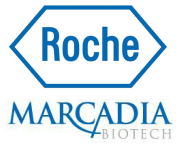Roche Further Broadens Diabetes Pipeline By Purchasing Marcadia
 Over the past year, several of the world’s largest pharmaceutical companies have expanded their efforts to develop new diabetes therapies and devices. In late December, Roche (the maker of the Accu-Chek series of blood glucose meters and insulin pumps) acquired Indiana-based Marcadia Biotech, which develops diabetes and obesity drugs. Marcadia’s two lead diabetes drug candidates, MAR701 and MAR531 (licensed to Eli Lilly), although currently in early-stage development and years away from reaching the market, may eventually offer exciting advances.
Over the past year, several of the world’s largest pharmaceutical companies have expanded their efforts to develop new diabetes therapies and devices. In late December, Roche (the maker of the Accu-Chek series of blood glucose meters and insulin pumps) acquired Indiana-based Marcadia Biotech, which develops diabetes and obesity drugs. Marcadia’s two lead diabetes drug candidates, MAR701 and MAR531 (licensed to Eli Lilly), although currently in early-stage development and years away from reaching the market, may eventually offer exciting advances.
Unlike Victoza and Byetta, which mimic the hormone GLP-1, MAR701 imitates both GLP-1 and GIP, another gut-derived hormone that plays a role in stimulating insulin secretion only when blood glucose levels are high (e.g., after meals). While phase 1 clinical trials for MAR701 are still ongoing, animal studies have shown greater reductions in both weight and blood glucose levels with MAR701 than with drugs like Victoza and Byetta. There is no word yet on other important questions like nausea; there is expected to be no hypoglycemia associated with MAR701, similar to Byetta and Victoza.
MAR531, on the other hand, is a type of drug known as a “glucagon-analog.” Glucagon promotes the release of glucose into the blood, making it useful when blood sugars become too low, such as during severe hypoglycemia. Although “glucagon emergency kits” are sold in the US as treatments for severe hypoglycemia, many find these products difficult to use because they require reconstitution (mixing the glucagon with water) prior to use. MAR531 attempts to simplify glucagon administration in two ways. First, by modifying glucagon’s structure slightly, Marcadia’s scientists have been able to make MAR531 stable at room temperature for months and at refrigerated temperatures for years, eliminating the need for reconstitution. Second, MAR531 will be administered using a single-use, autoinjector pen, eliminating the syringes used in current glucagon kits. In the long run, MAR531 may also prove helpful for the development of a bi-hormonal artificial pancreas, which aims to use both insulin and glucagon infusions to control blood glucose levels, in a more precise and safe way than with an insulin-only closed-loop system. While MAR531 has exciting potential, it has yet to enter human trials. –BK







